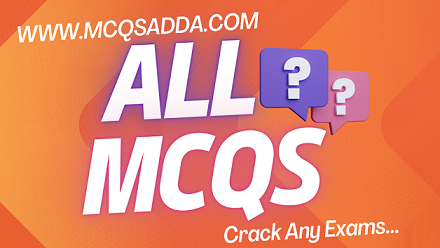1. Water is decomposed into hydrogen and oxygen by means of an electric current by the method of _________.
A. Electrolysis
B. Electric heating
C. Electroplating
D. None of these
ANSWER:A.Electrolysis
SOLUTION : Electrolysis of water is the chemical reaction in which the decomposition of hydrogen and oxygen gases is carried by passing an electric current.
2. Water is ___________.
A. Strong electrolyte
B. Weak electrolyte
C. Non – electrolyte
D. None of these
ANSWER:B.Weak electrolyte
SOLUTION:Pure water is a weak electrolyte, meaning it only partially ionizes into its constituent ions and has a low concentration of H3O+ and OH- ions. This is because pure water molecules don’t have enough ions to transmit electrons from one end to the other, and strong hydrogen bonding prevents it from ionizing fully.
3. The current flow through electrolyte is due to the movement of _________.
A. Holes
B. Electrons
C. Ions
D. None of these
ANSWER : C.Ions
SOLUTION: The current flow through the electrolyte is mainly due to the movement of ions.
4. ___________ is a non – electrolyte.
A. Acetic acid
B. Sugar
C. Calcium
D. Potassium
ANSWER:B.Sugar
SOLUTION:Glucose, a sugar with the chemical formula C6H12O6, is a typical example of a nonelectrolyte. Glucose (commonly known as sugar) dissolves readily in water, but because it does not dissociate inside the solution into ions, it is considered a nonelectrolyte.
5. Electrolysis is the passage of _________ through a liquid or solution accompanied by a _____________ change.
A. Chemical, electricity
B. Electricity, chemical
C. Electrons, Chemical
D. Electricity , physical
ANSWER:B.Electricity, chemical
SOLUTION:Electrolysis is the passage of electricity through a liquid or a solution accompanied by a chemical change.
6. The solution of a substance which conducts electricity is called _________
A. An electrolyte
B. An insulator
C. A conductor
D. None of these
ANSWER:A.An electrolyte
SOLUTION:An electrolyte is made up of solutions of ions or molten salts which can conduct electricity.
7. An electrolyte is a _________.
A. Metal
B. Sugar
C. Cell
D. Liquid that conducts electricity
ANSWER:D.Liquid that conducts electricity
SOLUTION :
An Electrolyte is a substance that dissociates into ions in solution and acquires the capacity to conduct electricity. Sodium, potassium, chloride, calcium, and phosphate are examples of electrolytes, informally known as lytes. Therefore, it a liquid that conducts electricity.
8. A weak electrolyte is one which _____.
A. Dissociates completely
B. Is partially ionised in the solution
C. Ionises completely
D. Is having high electrical conductivity
ANSWER: B.Is partially ionised in the solution
SOLUTION:Compounds which in fused or in the aqueous solution state are partially dissociated and are poor conductors of electricity are called weak electrolyte.
9. The particles present in strong electrolytes are __________.
A. Only molecules
B. Mainly ions
C. Ions and molecules
D. Only atoms
ANSWER:B.Mainly ions
SOLUTION: Hence, The correct option is mainly ions.
10. Sodium chloride is ________.
A. Strong electrolyte
B. Weak electrolyte
C. Non – electrolyte
D. None of these
ANSWER: A.Strong electrolyte
SOLUTION:
Sodium chloride is a strong electrolyte and dissociates to give Na+ and Cl− ions.

